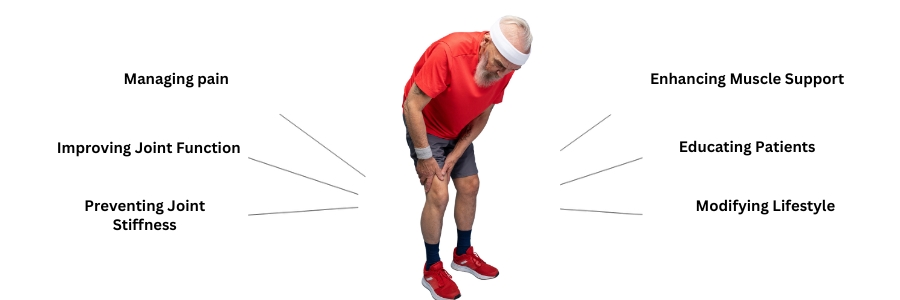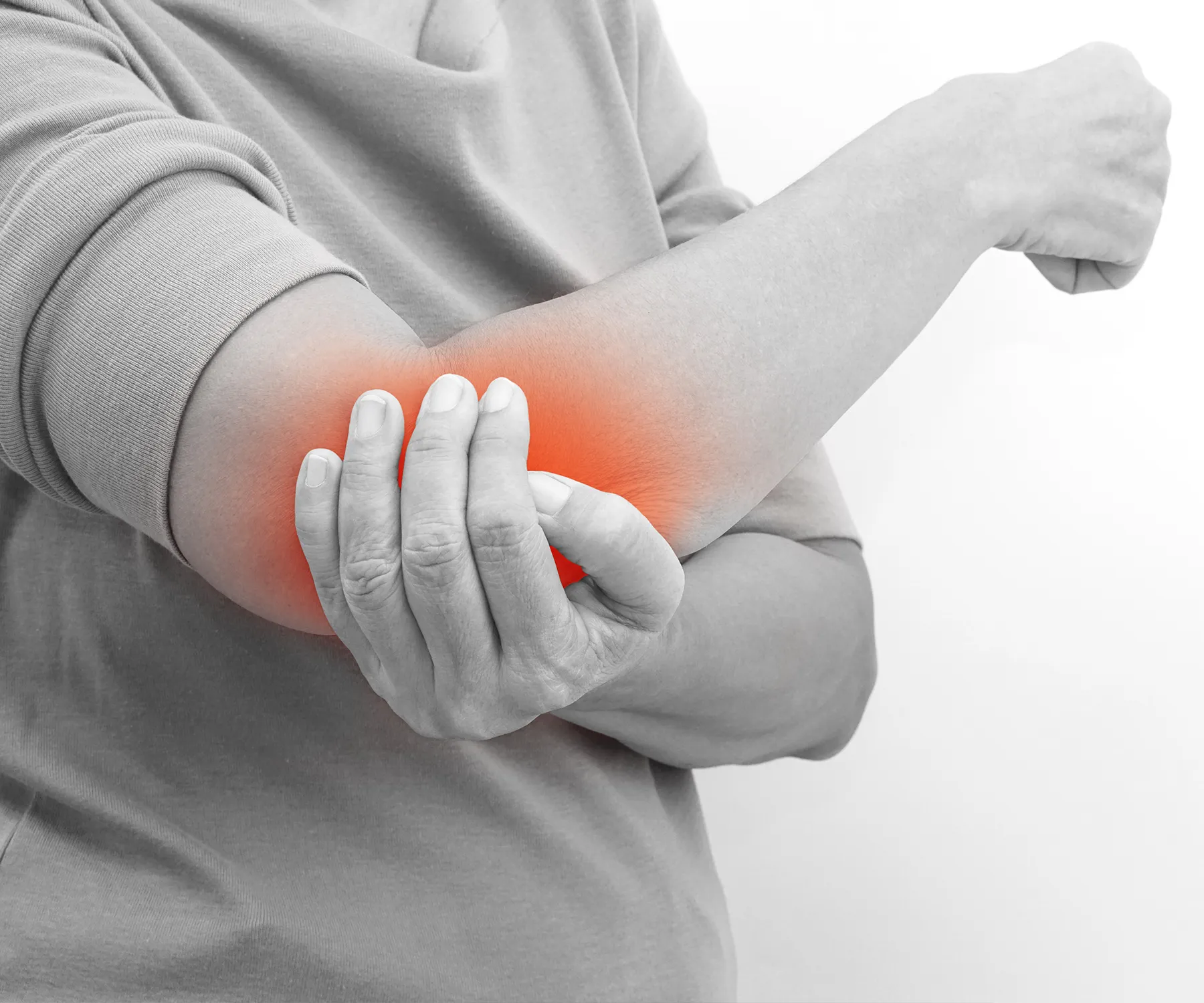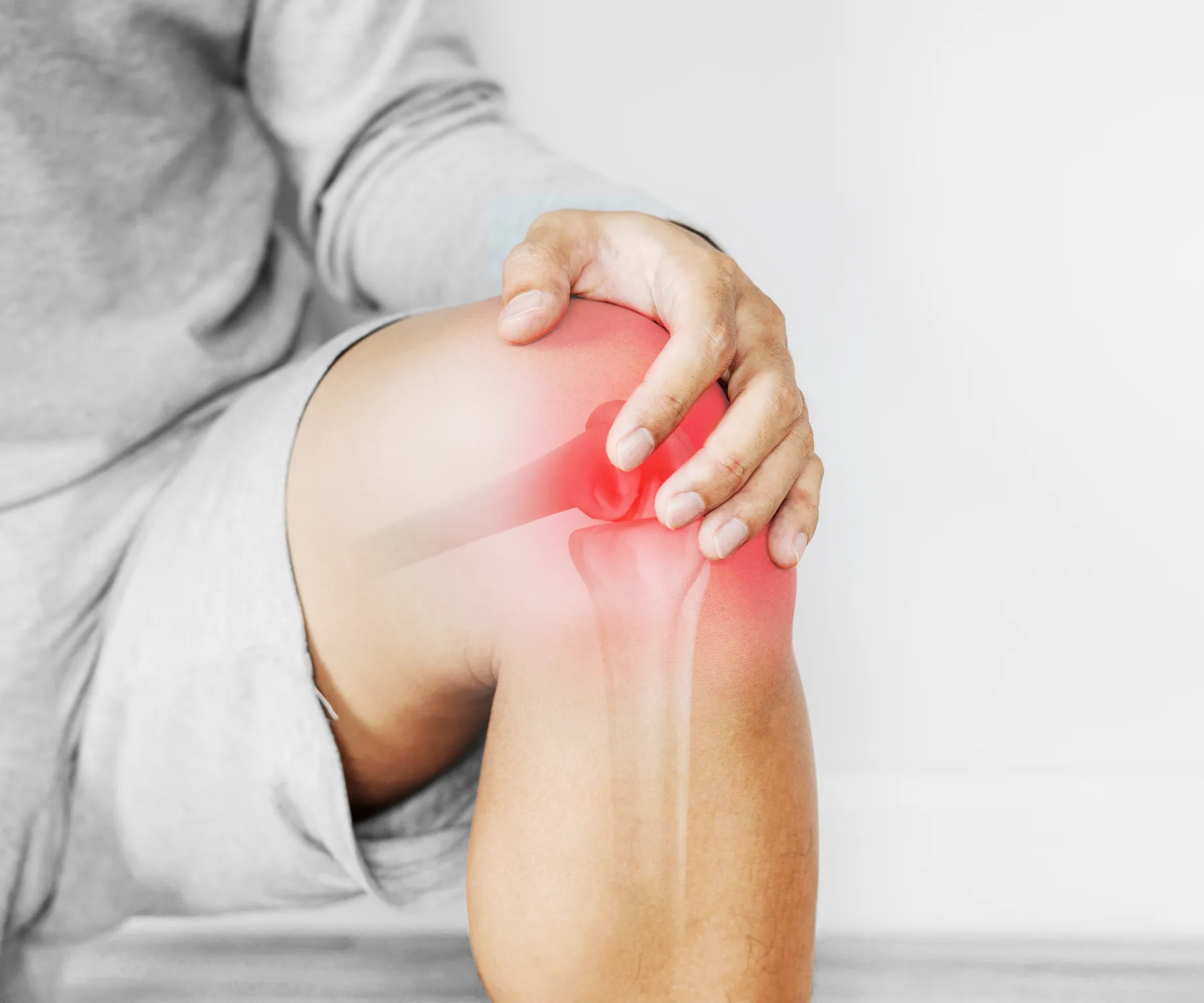
Arthritis Making Every Move a Struggle?
Osteoarthritis has been affecting more than 15 million adults annually, with India contributing 22% to 39% share to the global numbers.
Struggling with arthritis pain that interferes with everyday tasks like gripping objects, climbing stairs, walking, dressing, cooking, or driving?
While a complete cure for arthritis remains elusive, there’s hope in effective management through physiotherapy for arthritis. Take charge.
Has this been happening to you lately?
Joint Pain
Persistent pain and discomfort in the affected joints – may range from mild to severe
Joint Stiffness
Makes free movement difficult – often more pronounced in the morning or after periods of rest
Swelling
Inflammation in the joints leads to a visibly larger joint or a feeling of fullness and tightness in the affected area
Limited Motion
Decreases flexibility, limits the joint’s ability to move through its full range of motion
Joint Tenderness
Affected joints may feel tender to the touch, and applying pressure to the area can cause discomfort.
Warmth or Redness
The skin over the affected joint may become warm and appear red due to the increased blood flow and inflammation
Fatigue
Can be physically and emotionally draining, leading to persistent fatigue and a sense of overall tiredness
Weakness
Muscles surrounding the arthritic joint may weaken over time
What causes arthritis?
Chronic joint inflammation, autoimmune diseases, joint wear and tear, infections, and genetic predisposition are the causes of arthritis. Age, gender, obesity, and prior joint injuries are additional risk factors that may potentially be present. Effective treatment and management depend on pinpointing the exact reason.
Our Physiotherapy for Arthritis service will help you by

FAQs related to Arthritis Management
What is arthritis, and how can physiotherapy help?
Arthritis is a condition that causes joint inflammation, resulting in pain and swelling. Through the use of exercises, manual therapy, and modalities like heat or ice therapy, physiotherapy provides a non-invasive method of managing arthritis. Through the use of the exercises recommended in physiotherapy, the muscles surrounding the injured joints are strengthened, flexibility is increased, and joint function is improved. Over time, this can result in less discomfort and greater mobility.
What is arthritis, and how can physiotherapy help?
Arthritis is a condition that causes joint inflammation, resulting in pain and swelling. Through the use of exercises, manual therapy, and modalities like heat or ice therapy, physiotherapy provides a non-invasive method of managing arthritis. Through the use of the exercises recommended in physiotherapy, the muscles surrounding the injured joints are strengthened, flexibility is increased, and joint function is improved. Over time, this can result in less discomfort and greater mobility.
Can physiotherapy prevent arthritis from getting worse?
Even though physiotherapy cannot treat arthritis, it can be extremely effective in reducing the symptoms and halting future joint degeneration. Physiotherapy seeks to lessen the effects of arthritis on daily activities and improve the overall quality of life for those who are affected by it by assisting people in adopting proper body mechanics, recommending joint protection techniques, and encouraging regular exercise.
What exercises and stretches are good for arthritis?
With consideration for the distinct type and severity of arthritis, physiotherapy offers a personalized approach to stretches and exercises. Swimming, light stretching exercises, and range-of-motion drills are all generally useful low-impact workouts. Exercises that focus on strengthening the muscles that support the injured joints can increase stability and lessen joint tension. A tailored workout regimen will be developed by the physiotherapist based on each person’s requirements and restrictions.
How often should I go for physiotherapy to manage arthritis?
The frequency of physiotherapy sessions is determined by various factors, including the severity of the arthritis, individual response to treatment, and the specific goals established by the physiotherapist and the patient. In the beginning, regular workouts may be advised to create a habit and treat immediate problems. The frequency may decrease as progress is made, and the emphasis may switch to maintaining and progressing the exercises on your own at home. Following up with the physiotherapist frequently can help you monitor your development and make any necessary modifications.
Are there any lifestyle modifications that can complement physiotherapy in arthritis management?
Yes, there are a number of lifestyle changes that can support physiotherapy for arthritis. These include avoiding recurrent high-impact activities, adopting an anti-inflammatory diet, keeping a healthy weight to lessen joint stress, and include frequent low-impact exercise in daily routines.
Can physiotherapy for arthritis provide pain relief without the use of medication?
Yes, physiotherapy can treat arthritic pain using a variety of non-pharmacological methods. These could include techniques like heat or cold therapy to relieve pain, joint mobilization to improve movement, and manual therapy to lessen muscular tension. If you are suffering from arthritis pain, book a consultation to get started on a pain-free journey.
What other treatment options can be combined with physiotherapy to optimize arthritis management?
Occupational therapy to help with daily activities, prescription medication for pain and inflammation, and, in extreme situations, surgery to replace or repair damaged joints can all be combined with physiotherapy to improve arthritis management.
How can physiotherapy improve joint flexibility and mobility in arthritis patients?
Stretching exercises and manual techniques are used in physiotherapy to help arthritis patients with their joints’ flexibility and mobility. It is simpler to move and carry out daily tasks when you undertake these exercises to maintain or recover joint range of motion.
Can physiotherapy provide long-term benefits for arthritis patients beyond symptom relief?
Absolutely. Physiotherapy for arthritis can help sufferers in the long run by maintaining muscular strength, encouraging joint health, and providing appropriate symptom management techniques. Physiotherapy can ultimately improve quality of life and general wellbeing by enabling patients to actively participate in their care.






